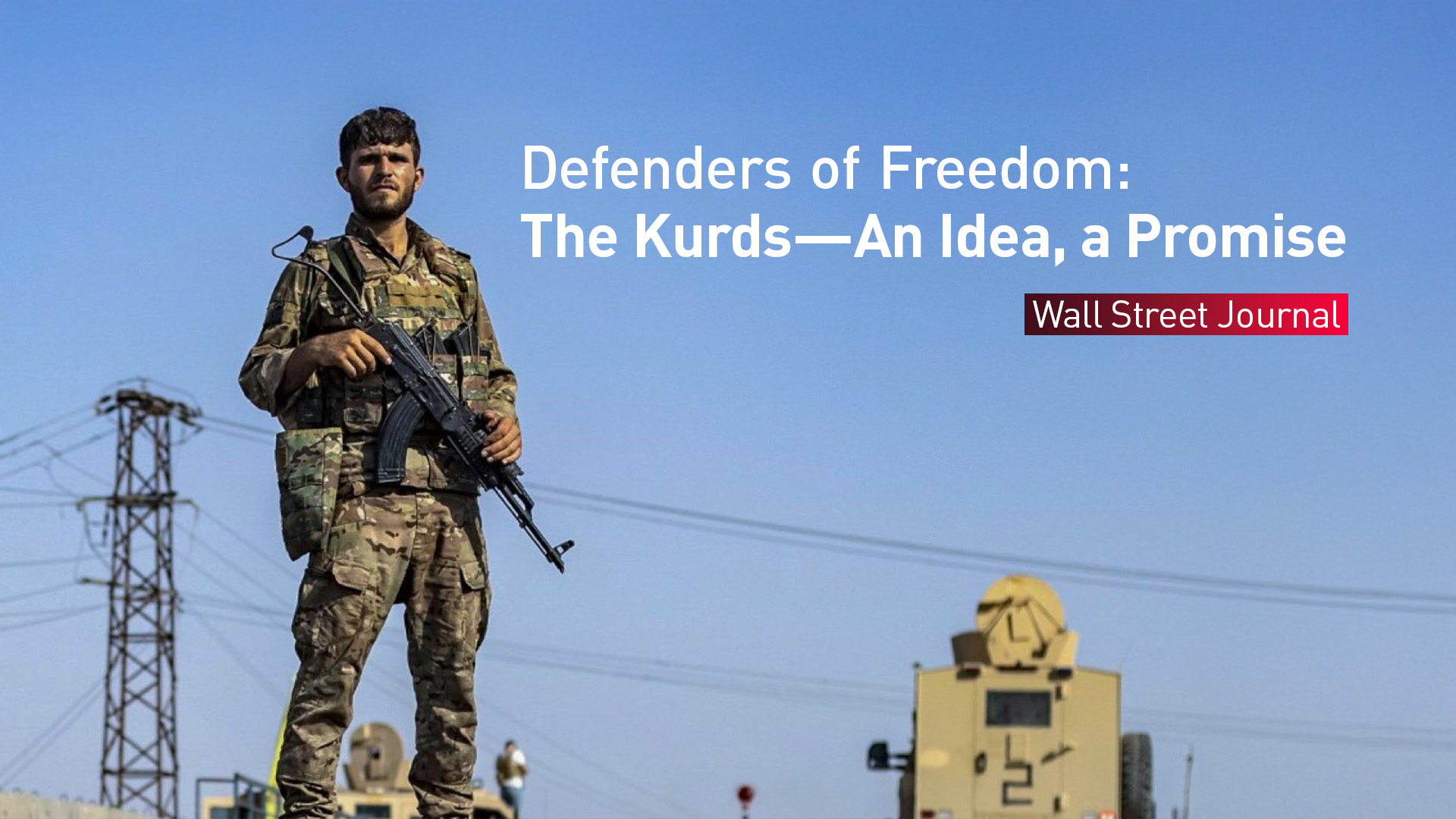Kaplan and Lévy argue that the Kurds embody “an idea—a promise,” exemplifying humanistic values, democracy, and tolerance in a region often overwhelmed by division and extremism.
ERBIL (Kurdistan 24) – In an opinion piece published in the Wall Street Journal, Thomas S. Kaplan and Bernard-Henri Lévy argue that the United States must seize the opportunity to strengthen its support for the Kurds in Syria and Iraq, emphasizing both moral obligations and strategic benefits.
The authors highlight that the Kurds continue to be one of America’s most trustworthy and reliable allies, particularly in the continued fight against ISIS, and urge for decisive U.S. action following the Assad regime’s downfall in Syria.
Kaplan and Lévy – co-founders of Justice for Kurds (JFK), a New York-based, not-for-profit advocacy group – stress that restoring strong American support does not entail significant military deployments.
“Given the right assistance, the Kurds already know how to fight—and win,” the Wall Street Journal authors remarked.
They underscored the Kurdish sacrifices in the fight against ISIS, where over 11,000 Kurdish fighters were killed and 34,000 wounded, compared to minimal U.S. casualties.
A Strategic Opportunity for America
The piece outlines the importance of U.S. engagement, as the authors write that renewed Kurdish support aligns with American interests in the region.
The opinion piece maintains that reinforcing the Kurds presents a “low-cost, high-impact policy option,” underlining America’s role as a dependable global leader.
The downfall of Bashar al-Assad’s regime, as they contend, has undermined the reputations of Russia, Iran, and even China, presenting the U.S. with a chance to strengthen its influence and leadership.
“Such a forceful assertion of American leadership, at minimal expense, would pay significant dividends,” the authors wrote, emphasizing key aims such as stabilizing post-Assad Syria and guaranteeing that more than 10,000 ISIS members currently held by Kurdish forces remain secured.
A Force for Peace and Stability
The Wall Street Journal article also regards the Kurds as far more than just a strategic ally.
Kaplan and Lévy argue that the Kurds embody “an idea—a promise,” exemplifying humanistic values, democracy, and tolerance in a region often overwhelmed by division and extremism.
Under enormous pressure, the Kurds of Syria and Iraq have established free and inclusive societies committed to defending vulnerable minorities, including Christians, Yazidis, and Druze communities.
They argue that the Kurds’ pledge to pluralism and peace makes them crucial to the region’s future stability.
“Syrian and Iraqi Kurds constitute an essential force for peace and stability,” the authors write, urging the United States to ensure that Kurds play a vital role in post-Assad Syria.
Countering Regional Threats
The article further underlines the geopolitical stakes, underscoring the need to counteract Turkish hostility toward the Kurds, averting the resurgence of ISIS, and weakening Iran’s so-called “axis of resistance.”
Kaplan and Lévy argue that these actions align with broader U.S. interests, including furthering Arab-Israeli peace.
By investing in strong political and security partnerships with the Kurds, the U.S. can steady the region while demonstrating its values and dependability as a global leader.
“The Kurds are much more than a rampart against barbarism or a valiant partner in the promotion of Western interests,” the piece concludes, urging the U.S. to honor its debt to its Kurdish allies.

